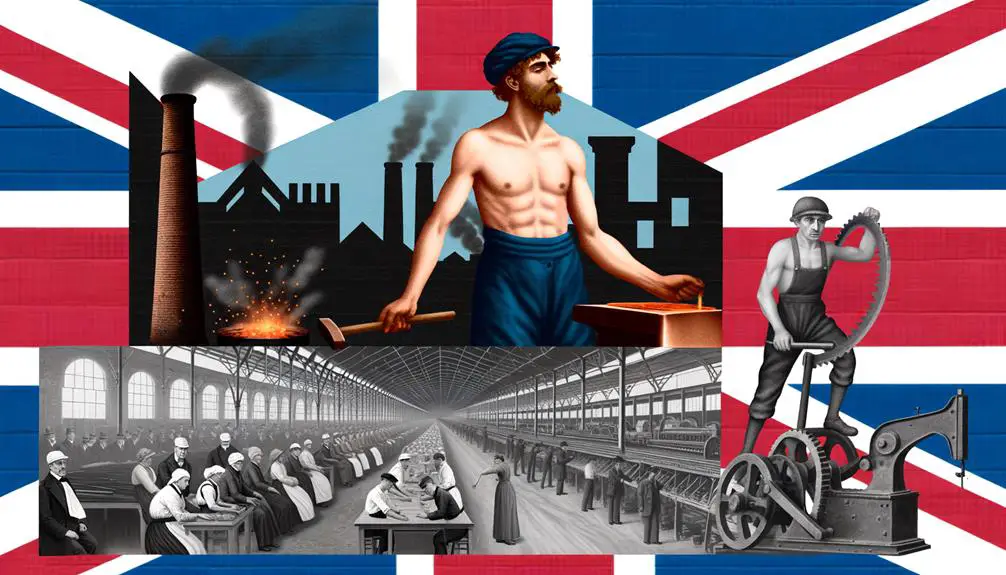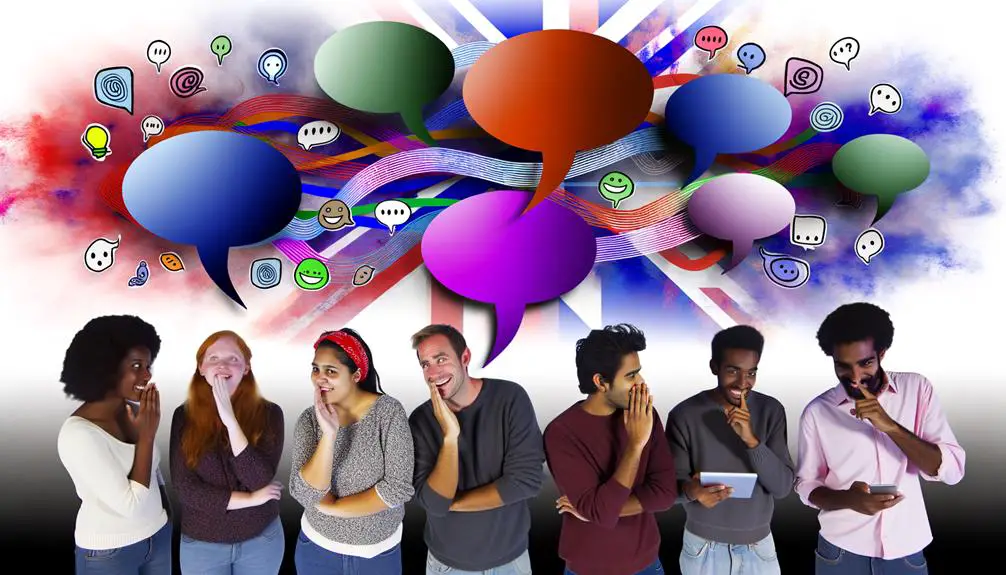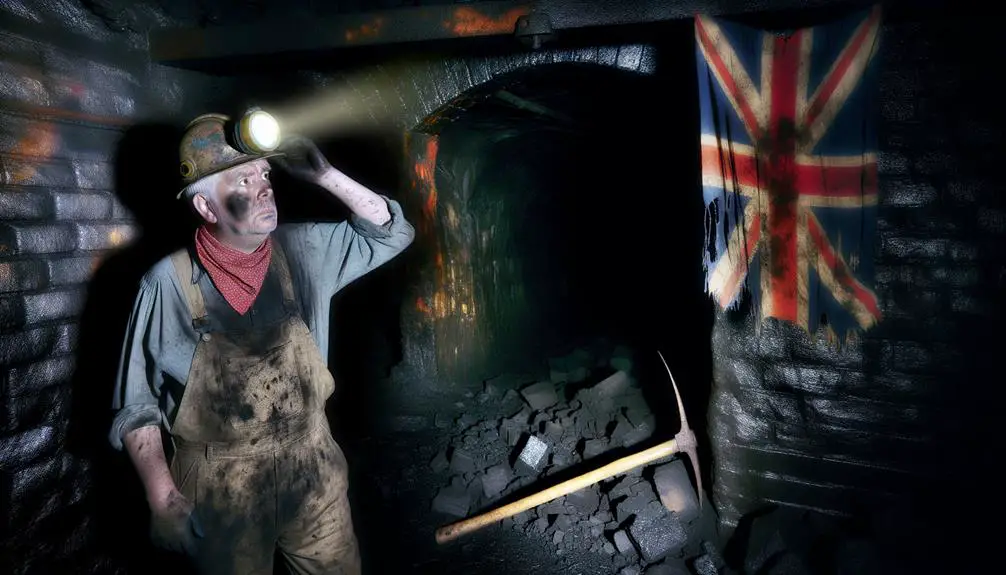In British slang, "scab" is a term deeply rooted in the socio-political fabric of early industrial Britain, initially denoting workers who crossed picket lines. Its origins stretch back to the Old Norse word 'skabb', emphasizing its intent to stigmatize strikebreakers and solidify cohesion among strikers. Over time, "scab" has evolved alongside shifting socio-political landscapes, broadening its application while retaining its core meaning. It serves as a symbol of betrayal and dissent within labor disputes, reflecting societal norms and attitudes toward labor movements. Its usage varies across regions, often bearing negative connotations. Understanding its layered history and nuances offers broader insights into labor relations and societal values.
Origins of 'Scab'

The term 'scab' has its roots deeply entrenched in the socio-political fabric of early industrial Britain, primarily emerging as a pejorative label for workers who crossed picket lines during strikes. Its etymological roots can be traced back to the Old Norse word 'skabb,' which means 'disease,' and from there, the metaphorical leap to its current usage isn't far-fetched. This choice of language, employing a disease metaphor, was no accident. It reflects a deliberate attempt to stigmatize those who, by working during strikes, were seen as infecting the unity and health of the worker community. This linguistic strategy leveraged the prevailing negative connotations of disease to socially ostracize strikebreakers.
Analyzing the adoption of 'scab' in this particular scenario, you uncover a strategic layer of labor movement tactics. It wasn't merely an insult but a calculated move to solidify in-group cohesion among striking workers. By equating strikebreaking with disease, the term 'scab' effectively painted a vivid picture of betrayal and contamination, further vilifying those who chose to cross the picket lines. This choice of language served not only to condemn but also to unify, encapsulating the complex dynamics of labor struggles in a single, powerful word.
Evolution Over Time
Over time, 'scab' has undergone significant linguistic evolution, morphing in response to shifting socio-political landscapes and broadening in application beyond its original context. Initially anchored in labor disputes, its journey through the lexicon reflects a broader cultural impact, signaling not just a linguistic shift but a mirror to changing class dynamics and labor relations.
This evolution underscores a complex interaction between language and society, where 'scab' serves as a litmus test for societal attitudes towards labor and dissent. As the term's application expanded, it encapsulated a wider array of social and political dissenters, moving beyond the picket lines to denote a broader sense of betrayal or deviation from a collective norm.
The flexibility of 'scab' illustrates the dynamic nature of slang, adapting to new contexts while retaining a core of its original meaning. This linguistic shift hasn't occurred in isolation but is a reflection of the cultural impact of changing economic conditions, labor movements, and societal values. Through its evolution, 'scab' offers a lens into the intricate relationship between language, culture, and socio-political change, demonstrating how words can evolve in meaning and application in response to broader societal shifts.
Social Implications

Understanding the social implications of the term 'scab' reveals how deeply societal norms and labor relations shape linguistic expression. This term, rooted in British slang, has evolved beyond a mere descriptor to embody a complex web of cultural acceptance and linguistic diversity. It's not simply a word but a reflection of societal attitudes towards labor, solidarity, and the individual's role within the broader community.
| Aspect | Cultural Acceptance | Linguistic Diversity |
|---|---|---|
| Usage Context | Often negative | Varies across regions |
| Social Perception | Linked with betrayal | Reflects regional identity |
| Impact on Speaker | Can signal in-group status | Demonstrates local knowledge |
| Impact on Listener | May induce social ostracism | Encourages linguistic adaptability |
In this light, 'scab' serves as a litmus test for understanding how language can both reflect and influence social dynamics. Its usage underscores the tension between individual choices and collective ideals, marking a significant point of contention within communities. By examining 'scab' through the lens of cultural acceptance and linguistic diversity, one gains insight into the intricate ways language functions as a social barometer, measuring and molding the fabric of community relations.
In Trade Union Context
Exploring the term 'scab' within the domain of trade unions exposes its pivotal role in shaping perceptions of loyalty and dissent among workers. Within this context, 'scab' isn't merely a term; it embodies a complex narrative of labor disputes and the delineation between solidarity and individualism. When workers decide to strike, unity becomes their strongest weapon against perceived injustices. However, when an individual crosses the picket line, accepting work despite an ongoing strike, they're branded a 'scab.' This label transcends a simple descriptor, morphing into a marker of betrayal against collective efforts.
In labor disputes, the notion of a 'scab' intertwines with the concept of strike breaker roles. These individuals, often seen by their peers as undermining the strike's effectiveness, become central figures in the discourse on union loyalty and worker rights. The term serves not only as a social marker but also as a tactical element within labor disputes, influencing strategies on both sides. It's a word charged with the power to sway opinions, alter dynamics, and, most importantly, reflect the deeply ingrained values of solidarity and collective action within the trade union movement.
Modern Usage and Perception

In today's digital era, the term 'scab' has evolved, reflecting nuanced perspectives on labor disputes and worker solidarity. You'll find that its usage extends beyond the picket lines, permeating digital forums and social media, where debates around labor rights and ethical employment practices are vigorous. The term's cultural impact is significant, as it encapsulates a broader societal discourse on the value of collective action versus individual gain.
Moreover, regional variations in the term's connotation highlight the complexity of modern labor movements. In some areas, 'scab' retains its starkly negative connotation, symbolizing betrayal to one's peers. In others, its usage is more nuanced, reflecting a deeper understanding of the economic pressures that lead individuals to cross picket lines. This variation isn't just geographical; it's also generational, with younger workers often viewing the term through a different lens than their older counterparts.
Analyzing the modern perception of 'scab' reveals a landscape where language, culture, and the politics of labor intersect. As you navigate these discussions, it's essential to recognize the term's charged history while also considering the evolving realities of work and solidarity in the 21st century.
Frequently Asked Questions
How Do Regional Dialects Within the UK Influence the Understanding and Usage of the Term 'Scab'?
You'll find that regional dialects greatly affect the interpretation and application of words due to language evolution. Dialect mapping reveals how these variations contribute to a nuanced understanding beyond the term's conventional definition.
Are There Any Notable Literary or Cinematic Works That Have Significantly Impacted the Public's Perception of the Term 'Scab'?
You'll find that certain films and books deeply influence scab etymology and symbolism, offering a nuanced perspective on its usage. These works critically shape how the term is perceived, embedding it into cultural consciousness.
How Does the Term 'Scab' Intersect With Online and Digital Culture, Particularly in Forums or Social Media Discussions?
In online forums, "scab" ignites digital activism like wildfire, challenging online etiquette. Your interactions shape its usage, reflecting societal values in digital spaces. It's a battleground for discourse, uniting or dividing users with each post.
In What Ways Have Non-English Speaking Countries Adopted or Adapted the Term 'Scab' Into Their Own Language and Cultural Context?
You'll find non-English speaking countries have both adopted and adapted 'scab' into their languages, showcasing language adaptation and cultural integration. This reflects a nuanced understanding of global linguistic exchange and cultural dynamics.
Has the Term 'Scab' Been Utilized in Any Major Political Campaigns or Movements Outside of the Trade Union Context, and if So, How and With What Implications?
Ever wondered how powerful words can be in political movements? The term 'scab' has transcended labor strikes, touching various campaigns with its historical origins, shaping public opinion and sparking debates with profound implications.
Conclusion
To sum up, the term 'scab' has journeyed far from its physical origins to embody a complex symbol of betrayal and conflict within the labor movement. Its evolution underscores the power of language to reflect and shape social dynamics.
As you've seen, within the trade union context, it's a mark of division, carrying heavy emotional and social implications. Remember, 'a house divided against itself can't stand.'
In modern discourse, perceptions of 'scab' remain contentious, illustrating the continuing struggle for solidarity and understanding in labor rights. This analysis reveals the intricate relationship between language, identity, and societal values.







